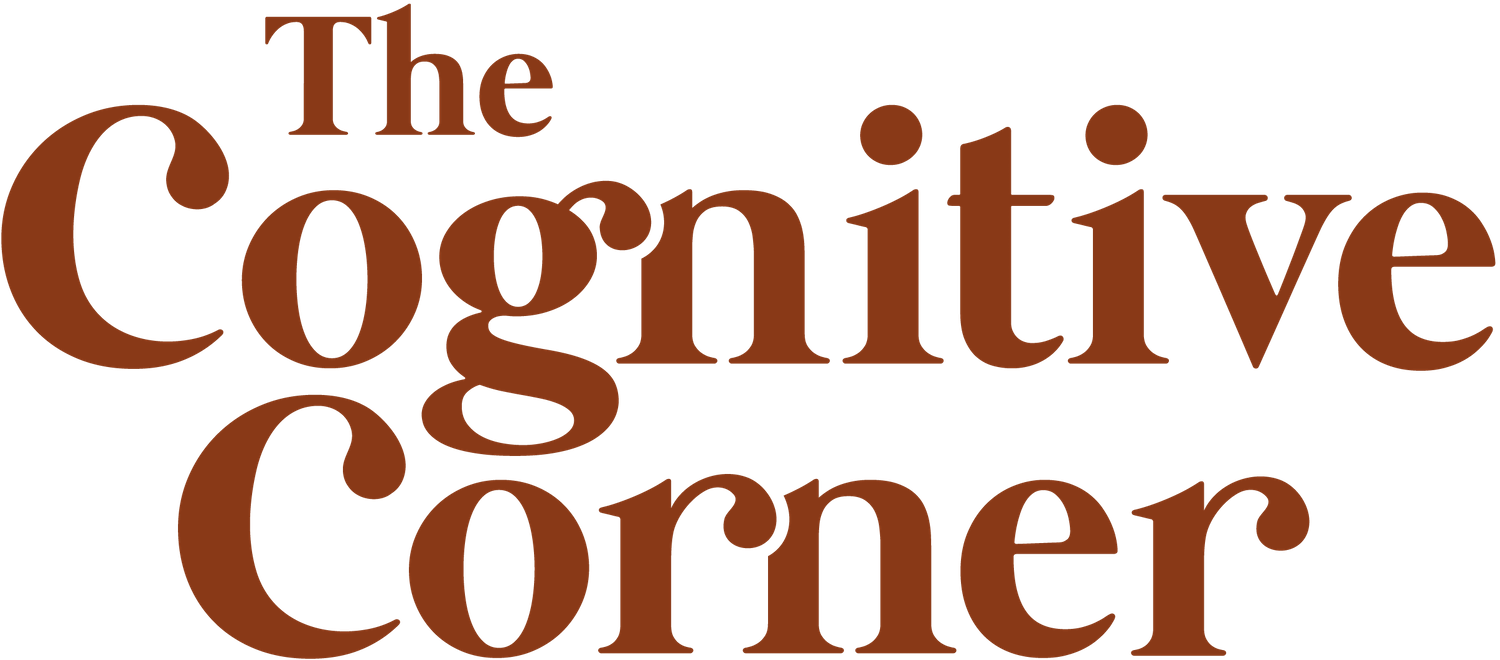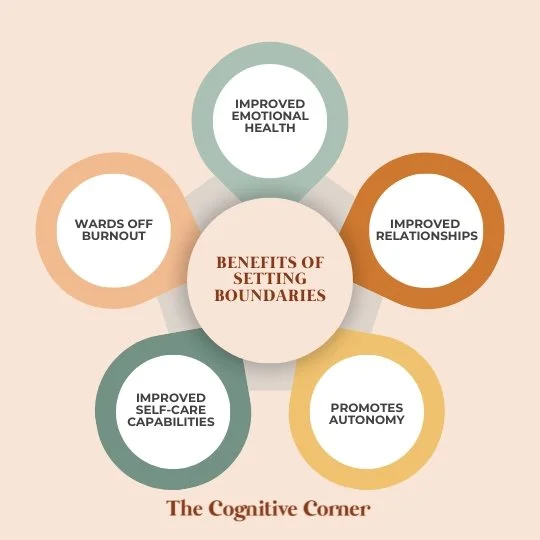The Importance of Boundaries – How to Recognize and Define Them in Your Life
Have you ever left an interaction feeling off, or uncomfortable, potentially wondering what you could do to prevent feeling like that next time? The answer could be setting boundaries! In today’s post, we cover what boundaries are, why they’re important and tips on how to identify where you may need to set them.
What are Boundaries?
Some of the benefits of setting boundaries
Boundaries are limits or guidelines we create to protect our mental, emotional, sexual, financial or physical well-being. They allow us to define what we’re comfortable with, supporting the maintenance of healthy relationships, emotional regulation and a balanced life. Without healthy limits, we risk feeling overwhelmed, resentful, or taken for granted.
Why Boundaries Are Important
Boundaries are essential for personal well-being and healthy interactions. They provide structure to relationships by defining what’s acceptable, allowing us to protect our time, energy, and mental health. Clearly defined boundaries also make communication easier, reducing the chance of misunderstandings, and emotional conflict and preventing burnout.
How to Identify Areas Where You Need Boundaries
The areas in which we need to set boundaries may not always be obvious at first! However, we can by reflecting on situations that leave you feeling concerned, exhausted, stressed, down, or frustrated. Make a note of times when you felt that people were overstepping or even when you felt spread too thin. These moments can often tell us where personal limits are needed, whether in family dynamics, friendships, or work responsibilities.
Examples of Different Types of Boundaries
They can take different forms, depending on the need. For instance:
Emotional boundaries protect our feelings and emotional energy. For example, discussing certain situations with your friends may evoke worry and stress for you.
Physical boundaries define personal space and physical touch preferences. This may look like discussing what level of space/touch you’re comfortable with.
Time boundaries ensure we have enough time for our priorities. For example, allocating time for ourselves to preserve our well-being, instead of overpromising to different people
Mental boundaries prevent mental overload and help us manage what we take on; this could look like being honest about your mental capacity to friends and family.
What Happens If Boundaries are Crossed? What to Look For and Potential Outcomes:
If somebody intentionally or unintentionally crosses your limits, this can be challenging, and it can be hard to know what this looks like. Understanding situations in which test your boundaries can help you better know your own limits. Additionally, knowing potential outcomes of when these are crossed is also very important as it helps you prevent this from becoming a pattern in the future!
Here are some examples of situations that might indicate that your boundaries are being crossed:
When someone is not listening when you say no.
Someone repeatedly makes you feel guilty.
Someone continues to lie to you.
When someone tells others anything you tell them in confidence.
What can happen when boundaries are crossed:
Feeling burnt out.
Putting strain on relationships.
Loss of self-identity.
Developing people-pleasing habits.
Lack of communication in relationships.
More conflict.
Conclusions
Different types of boundaries help us manage our energy and interactions in specific areas of life. However, it is also important to recognize the signs and understand what happens when they are crossed. Reflecting on what limits you need, why you need them, and how to communicate them can be a powerful step toward better self-care and healthier relationship! This can also help to prevent boundaries from being crossed!
If you want to know more about how you can set boundaries in your life or if you have questions, feel free to reach out to The Cognitive Corner! Our practitioners are trained in a variety of modalities like CBT, DBT, and more to help you navigate them!
If you are in Canada, book a free consultation with one of our available practitioners on the website.
References
How is Life Tree(ting) You?: Trust, Safety, and Respect - The Importance of Boundaries. (2022). Student Affairs; Stanford University. https://studentaffairs.stanford.edu/how-life-treeting-you-importance-of-boundaries#:~:text=Boundaries%20help%20determine%20what%20is,safety%2C%20and%20respect%20in%20relationships.
Pattemore, C. (2016, May 17). 10 Ways to Build and Preserve Better Boundaries. Psych Central. https://psychcentral.com/lib/10-way-to-build-and-preserve-better-boundaries#types
Drescher, A. (2024, March 5). Signs your boundaries are being crossed & how to respond. Simply Psychology. https://www.simplypsychology.org/crossing-boundaries.html



